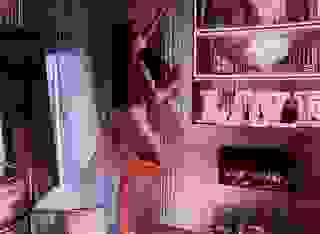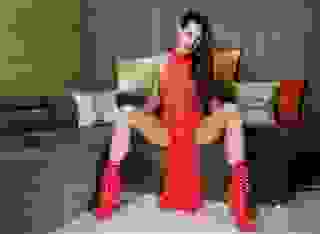- How To
- Parts of Speech Pt. 02
Note: You can change font size, font face, and turn on dark mode by clicking the "A" icon tab in the Story Info Box.
You can temporarily switch back to a Classic Literotica® experience during our ongoing public Beta testing. Please consider leaving feedback on issues you experience or suggest improvements.
Click herePRONOUNS
A pronoun is a word that takes the place of a noun and there are eight types: personal, relative, interrogative, demonstrative, reflexive, intensive, reciprocal and indefinite.
Personal pronouns refer to people or things. Examples are I, she, he, their and ours.They are going to the opera.Her hair color is horrible.
Arelative pronoun is usually associated with adjective clauses and sometimes noun clauses. A few examples would be who, which and what. The man,who clutched the book to his chest, yelled at the child.
Interrogative pronouns introduce questions and examples are Who?, What? and Where?Which house does Brad Pitt live in?When are we going to fuck?
Ademonstrative pronoun introduces the antecedent. The antecedent is a word that takes the place of a pronoun and some examples are those and these.This is my sister.Those are my shoes.
AReflexive pronoun refers back to the subject of the sentence while anintensive pronoun intensifies a noun or pronoun. Some examples are myself, itself and themselves. Used in a reflexive manner, an example would be, He askedhimself a stupid question. Used in an intensive manner, an example is, Weourselves enjoyed watching the fight.
Reciprocal pronouns refer back to single parts of a plural antecedent. Examples are each other and one another. The girls slatheredeach other with whipped cream.
Finally, anindefinite pronoun represents a person, place or thing that is not specified and can be singular or plural. Some examples of singular pronouns are neither, somebody and either and plural examples are few and several. There are a few that rely on the other parts of the sentence to determine if they are singular or plural and examples of these are none, some, any, all and most.
Someone needs to talk to him, is an example of a singular indefinite pronoun. An example of a plural indefinite pronoun would be,Both of the women were beautiful. Two examples of indefinite pronouns that require other sentence parts to determine if singular or plural: Some of the breads are edible; some of the bread is edible.
ADJECTIVES
An adjective is a word that provides description to a noun and can be possessive, demonstrative, interrogative and indefinite. A simple example is, Theblue balloon floated over the wall. In some circles, articles such asa,an andthe are considered to be adjectives.
Possessive, demonstrative, interrogative and indefinite adjectives are often similar to pronouns.My head is an example of a possessive adjective;This man is an example of a demonstrative adjective;Which temple is an example of an interrogative adjective andAny meat is an example of an indefinite adjective.
ADVERBS
An adverb is a word that is used to modify or lends description to adjectives, verbs and sometimes, other adverbs. Most adverbs end in -ly and will answer how, when or where. Some examples arequickly,always andnever. Adverbs can also be used in a conjunctive fashion and are used to join clauses together.However andtherefore are some well-used conjunctive adverbs.
PREPOSITIONS
A preposition is a word that links words to other words in a sentence, most usually pronouns, nouns and phrases. There are quite a few words that are classified as prepositions and just a few examples areon,above,in,behind,below,into andwith. Words that follow the preposition are generally known as being part of a prepositional phrase, such aswithin the bedroom andsince the fall.
CONJUNCTIONS
I don't think anyone will ever forget Schoolhouse Rock's famous "Conjunction Junction" song. The producers of the show used men working in a train yard to illustrate the function of a conjunction. A conjunction is a word that connects words, phrases and/clauses and there are two types: coordinating and subordinating.
The most commonly usedcoordinating conjunctions areand,but andor. The combinations ofeither/or,both/and andnot only/but also are also examples of coordinating conjunctions. Asubordinating conjunction is a conjunction that forms a subordinate clause and connects it with the main sentence. Some examples of subordinating conjunctions arewho,which,although,because andthough.
An example of coordinating conjunction usage would be, I like cornand potatoes. An example of subordinating conjunction usage would be,Sinceyou've been gone, I've been a bad girl.
INTERJECTIONS
An interjection is a word or group of words that are usually followed by an exclamation mark.Stop! is a good example of an interjection.








